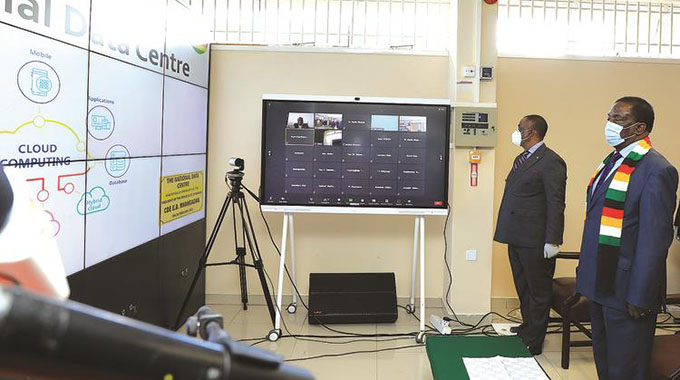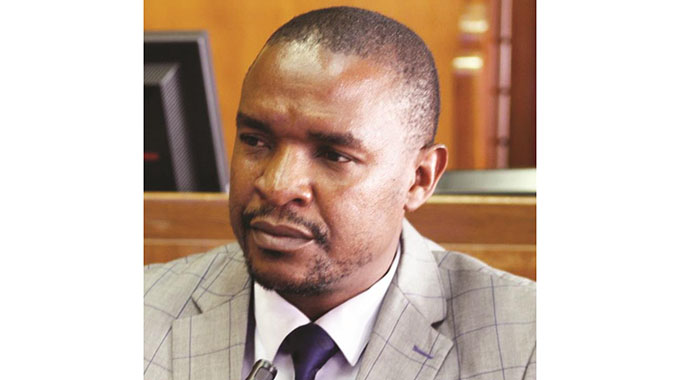Editorial Comment

The advantages of the National Data Centre, commissioned by President Mnangagwa last week are many, some obvious, some less so, but all generally making the Government and its agencies more efficient, and in many cases cheaper, and ensuring better and quicker service for Zimbabweans in their dealings with State agencies.
But there are also dangers, over what is stored and who has access to data and for what reason, that must be addressed with firm rules and guidelines laid down to protect privacy where this is warranted and to ensure Zimbabwe gains all the advantages, without any of the disadvantages, of the new centre.
The National Data Centre basically provides a common secure platform for all Government data, amalgamating dozens of separate systems and servers across all the ministries and Government agencies, allowing a degree of interconnection and, presumably, ways of extracting statistical information that allow policy makers to make better policies and better analyses of trends, successes and problems.
The extra capability will also allow a serious advance in e-government, whereby Zimbabweans can interact with Government agencies without having to be physically present in some civil servant’s waiting room or queuing in the sun or rain.
This is particularly important for people who do not live in the larger centres, and in some cases for people who might live in cities outside Harare.
We have all become used now to dealing with banks, medical aid societies, and others in the private sector online, a process accelerated by Covid-19 when most people did not want to travel and when service providers would rather sit at a terminal than have someone breathing on them from across the desk.
Government has been talking about similar systems for some years: now it can implement them and, more importantly, give identical service to a business person in Gokwe as they could get if they were based in Harare.
Other examples already mentioned by those running the centre will make some of the quirks of necessary checks a lot less burdensome for the law abiding while making cheating easier to detect.
For example, simply scanning registration numbers at a tollgate will allow automatic checks to be made to ensure the vehicle is insured and licensed and that if it is a public service vehicle, such as a bus, that it has a valid VID certificate and is appropriately licensed to carry passengers.
Suddenly delays at road blocks largely vanish. And even a driving licence check is simple if a number can be punched in and full details, with back-up picture, allow the driver to be passed within a minute.
This has been extended in many countries to other activities. For example, your first application for an American passport is time-consuming, done in person and costs more.
This is when someone checks all the details. Replacements are simple since required data is available. So if you are still a citizen, there is no death certificate in your name and everything else checks out, you make an online payment and within a few days collect your passport from a post office.
Some countries use the better data storage to make roads safer. Those small minor traffic offences with fixed fines can be stored, but if you are then seen to be a habitual speeder, or someone who frequently shoots a red light, your fines rise or you go to court to see if more appropriate penalties are required.
And here we start edging into the dangers. Just how long should the record of a speeding fine be logged in the system? Just who is entitled to look at your driving record in the first place? If information stored appears to be wrong, how do you find out and how do you get it corrected?
This practical example shows the sort of questions that can arise and will arise, all built around access rights and who decides those rights. The initial default rules, that no official can access data electronically that they could not access from the manual files in their office might seem sensible and will work for many routine matters.
But the day comes when the possibility of interconnectivity becomes useful and someone does need to look at more. And thus we now start needing rules, needing to decide what an individual civil officer can see as routine, what they can seek approval to see as a one off from a superior, and how far that superior can grant permission.
None of this is difficult to work out, just time consuming, once the basic policy has been established and the guidelines set. Much of the work has already been explored in other countries, and a number of solutions found already.
Basic public information, like identity, driving licence and passport numbers can be wide open. In other cases permission is obtained in advance. This might arise when a company wants to be included on the list of approved bidders for Government contracts.
Already such companies can be sure that by applying they are already allowing those vetting them to check things like court records, something that becomes a lot easier with the National Data Centre, but this can be made explicit by ticking the box on the e-government form.
In police investigations, a detective can be given permission to see files across a range of departments. The same permission system can apply, but the fact that someone is under investigation needs to be far more tightly held than any subsequent conviction.
We assume that even in the early stages, with the security systems already in place for log-ins and passwords designed to keep the data secure, someone has been working out rules. But as the system develops these need to be formalised more strongly and the advantages of interconnected data opened while the invasions of privacy curbed,
A good time to get this right is at the beginning, that is now, before any trouble arises. We are sure that Zimbabweans can categorise the data, can work out access rights for each category and can deal with the new opportunities and new dangers of a single national data centre. But these sort of questions are just as important as the achievement of creating the system in the first place.









Comments